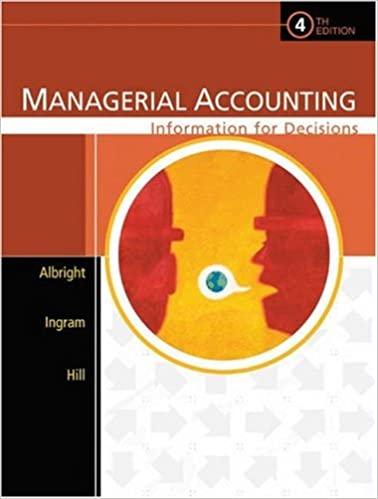Mark Brown has an opportunity to invest in a bicycle franchise shop under a nationally recognized brand
Question:
Mark Brown has an opportunity to invest in a bicycle franchise shop under a nationally recognized brand name. Mark has assembled the following information and estimates relating to this opportunity:
1. Rent on an operating facility would total \(\$ 4,000\) per month.
2. Estimated sales income would total \(\$ 800,000\) per year, and the variable cost of goods sold would be \(70 \%\) of sales revenue.
3. Costs to operate the shop would include \(\$ 87,000\) per year for salaries and benefits, \(\$ 4,000\) per year for insurance, \(\$ 15,000\) per year for utilities, and \(\$ 10,000\) per year for office expenses.
4. Display racks, repair equipment, and other fixed assets would cost \(\$ 270,000\) and have an estimated service life of 15 years, with no salvage value at the end of the service life. Mark would use the straight-line depreciation method.
5. Mark must pay a commission of \(5 \%\) of sales to the bicycle supplier.
If Mark does not invest in the bicycle shop, he could invest his funds in long-term bonds that would pay \(8 \%\) annual interest.
\section*{Required}
A. Determine the net annual income that Mark would realize from the franchise, ignoring income taxes. (Use the contribution approach format income statement.)
B. Compute the accounting rate of return that would be obtained by the franchise. Based on the accounting rate of return, would Mark be better off financially by investing in the franchise or the long-term securities?
C. Compute the payback period on the franchise. If Mark wants a payback period of five years or less, should he invest in the franchise? (Ignore income taxes.)
Step by Step Answer:

Managerial Accounting Information For Decisions
ISBN: 9780324222432
4th Edition
Authors: Thomas L. Albright , Robert W. Ingram, John S. Hill





